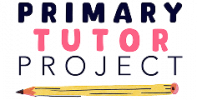At Primary Tutor Project, we understand that a
child's vocabulary development significantly impacts their academic
success and future confidence. According to a recent survey of teachers from
800 secondary schools, 4 in 10 pupils enter secondary school with a
vocabulary below age expectations. This limitation affects not only their
learning but also their ability to express themselves clearly.
The number of words a child learns in the early years
directly correlates with future success. A strong vocabulary allows children to
better understand instructions, engage with complex ideas, and communicate
effectively in both writing and conversation.
Why Vocabulary Matters for Your Child's Learning
A rich vocabulary enhances a child’s ability to:
- Understand
what they hear and read
- Express
themselves more clearly
- Think
critically and creatively
- Engage
in academic discussions
- Build
confidence in social settings
And the good news? Parents play a vital role in
boosting a child's vocabulary. The more you talk, read, and interact with your
child using diverse language, the better their word bank becomes.
Early Years: How to Grow a Toddler’s Vocabulary
Children are like sponges in their early years. Immerse them
in language from the start. Don’t simplify your words unnecessarily. If they
can say Tyrannosaurus Rex, they can learn just about anything!
1. Read Actively
When reading stories together, ask open-ended questions
like:
- "Is
the dragon scary? Why?”
- "What
do you think will happen next?”
Encourage full-sentence answers. Avoid one-word responses
and model descriptive language in your own speech, for example, "That huge,
rumbling truck is moving very fast!”
2. Describe the World Around You
Narrate your day and describe objects and actions in detail.
"This crunchy, red apple is very juicy.
Would you like a slice?”
Primary Age: Vocabulary Building from School Years Onward
Research shows that a new word needs to be used 6 to 12
times in context for it to become part of a child’s long-term memory. Try
these fun and interactive methods:
1. Read Together and Discuss
Reading is still the number one activity. Pause to explain
new words and ask questions to check comprehension. Make reading an engaging,
shared experience.
2. Play Word Games
Explore synonyms together. Challenge your child:
- "How
many words can you find for ‘ugly’?”
- "What’s
another word for ‘happy’ or ‘distant’?”
Use dictionaries, thesauruses, or child-friendly vocabulary
apps to expand understanding.
3. Act Out Adverbs
Turn vocabulary into physical activity. Try:
- "Can
you scamper silently?”
- "Can
you smile sweetly?”
Let your child create the actions and challenge you next.
4. Deepen Word Understanding
Discuss the shades of meaning of a word. Example:
- "Is
Harry Potter brave?”
- "Was
he always brave?”
- "What
would the opposite of brave look like?”
These discussions foster critical thinking and vocabulary
retention.
5. Use Mealtime as Talk Time
Dinner is a great opportunity to build vocabulary. Talk
about your day using descriptive language and encourage your child to do the
same. Avoid "I don’t know” answers by asking follow-up questions and giving
examples.
Final Tips to Support Vocabulary Growth
- Read
daily with your child. Books, articles, menus, signs, anything!
- Encourage
full-sentence answers in conversation.
- It’s
okay to correct mistakes gently.
- Keep
a dictionary or thesaurus handy or use Google together.
- If
you're ever unsure about your child’s language development, don't hesitate
to ask for help.
Need Help?
If you have any concerns about your child's learning, we’re
here to help. Contact us today at Primary Tutor Project. We’re happy to
offer guidance and support.





